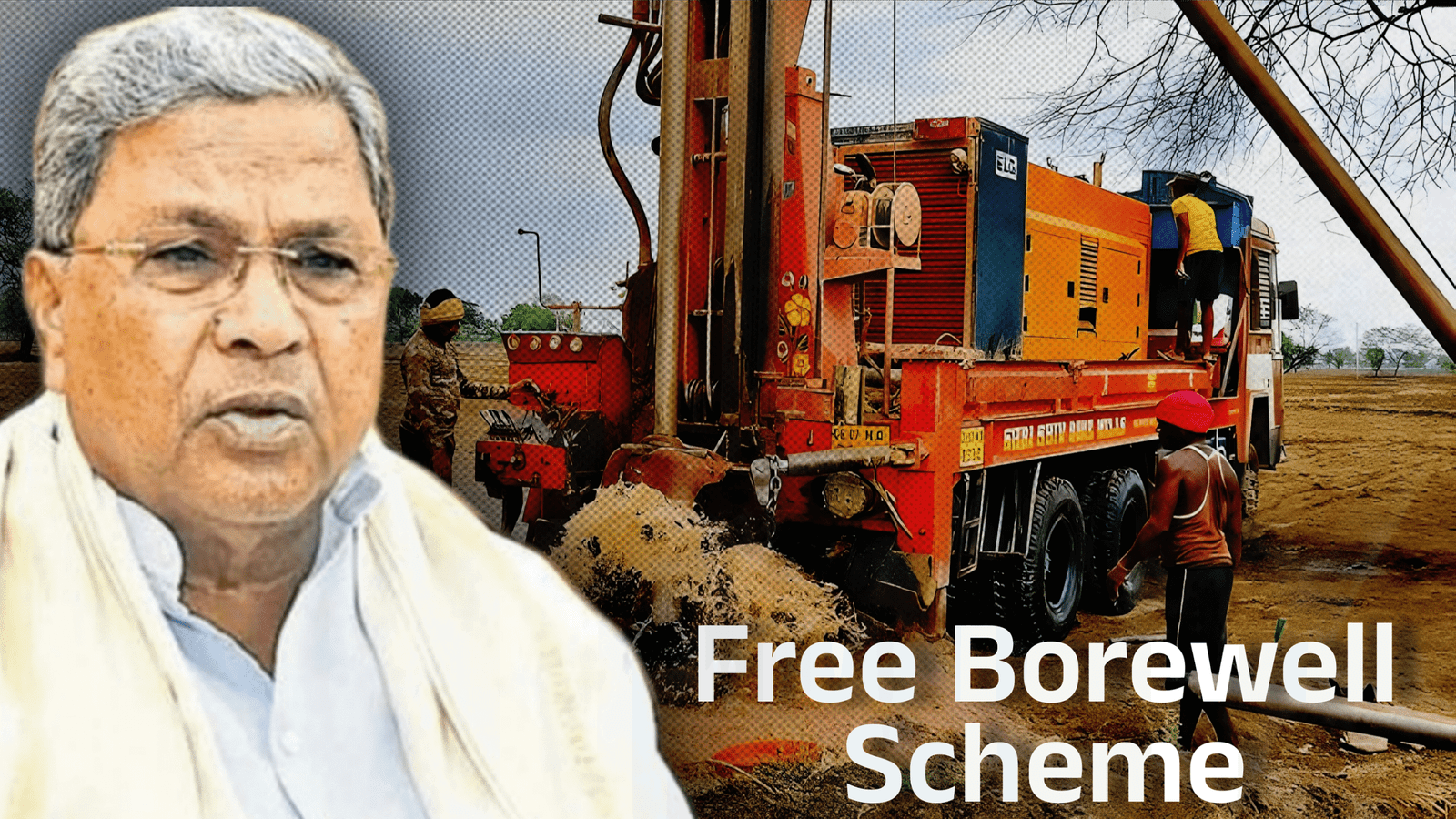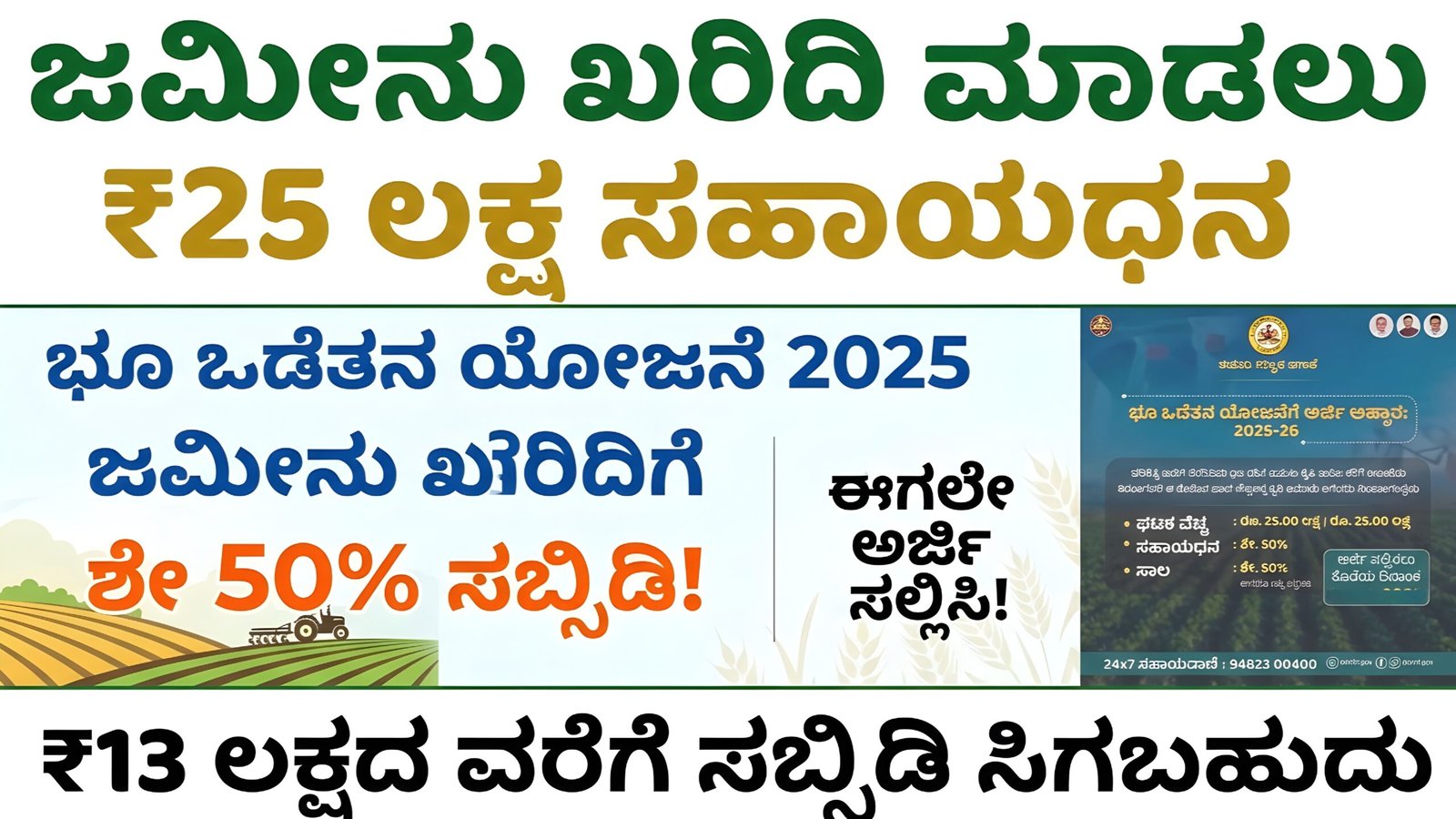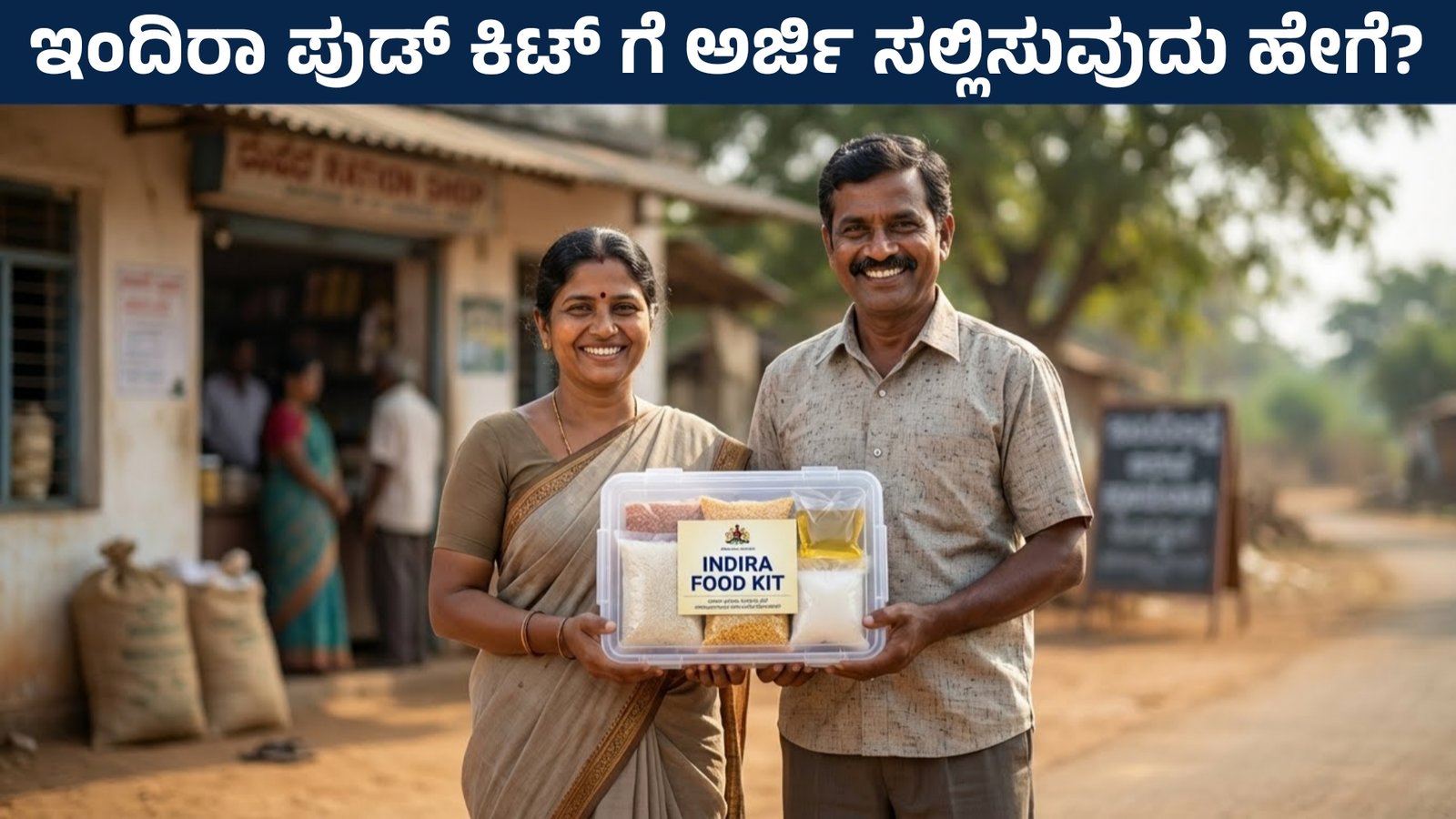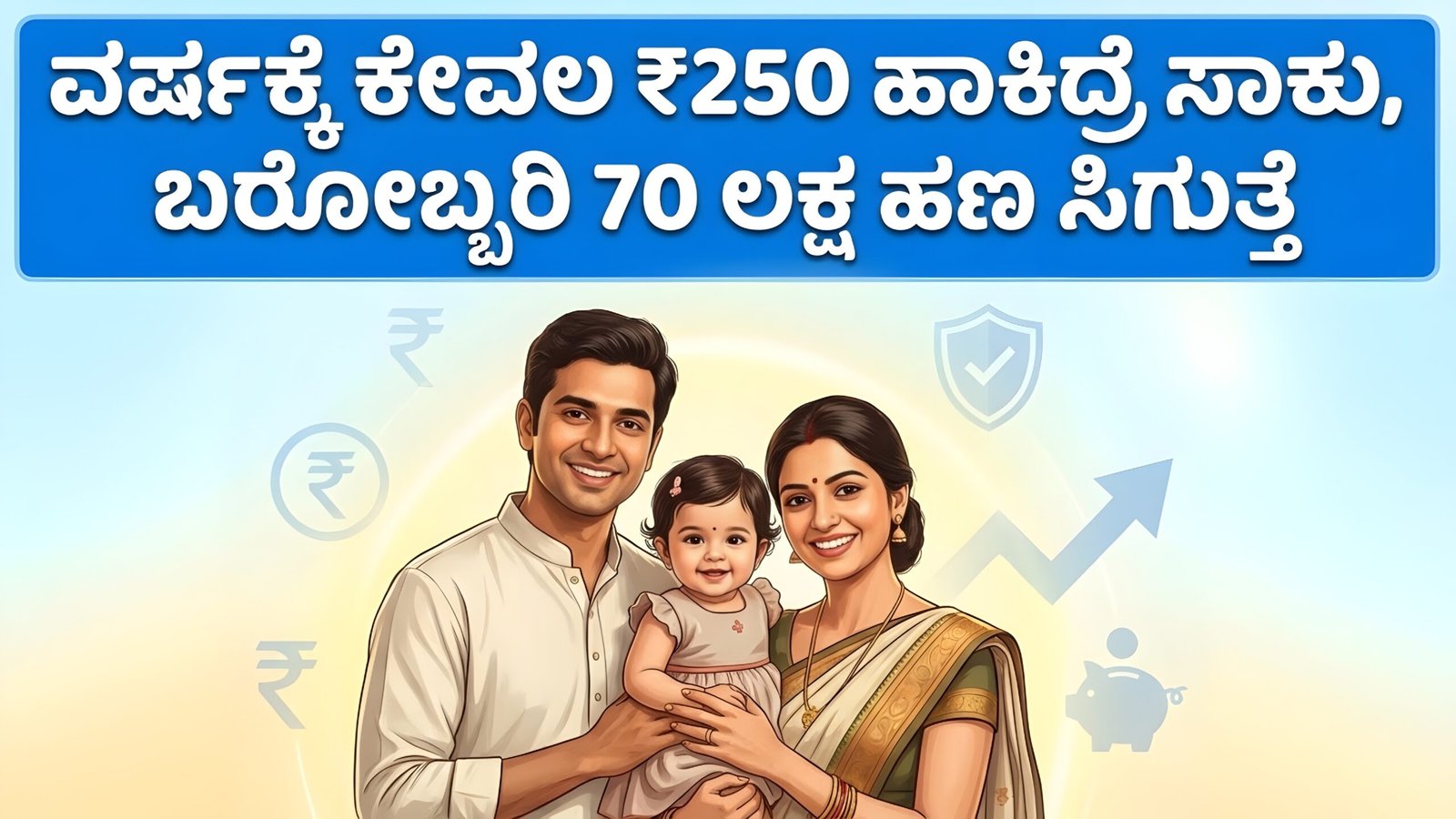Water is the lifeline of agriculture, and for millions of farmers in Karnataka, borewells are one of the most reliable sources of irrigation. However, the cost of drilling a borewell, installing pump sets, and ensuring a sustainable water supply is very high. Small and marginal farmers often cannot afford this expense, which results in crop failure, migration, and financial distress. To solve this issue, the Government of Karnataka introduced the Free Borewell Scheme under the Ganga Kalyana Yojane, managed by the Karnataka Minority Development Corporation (KMDC) and other allied departments.
This initiative aims to provide free borewells and irrigation facilities to eligible farmers, ensuring that agricultural land becomes productive and sustainable. Below is a complete, in-depth explanation of the scheme, including objectives, eligibility, application process, benefits, and challenges.
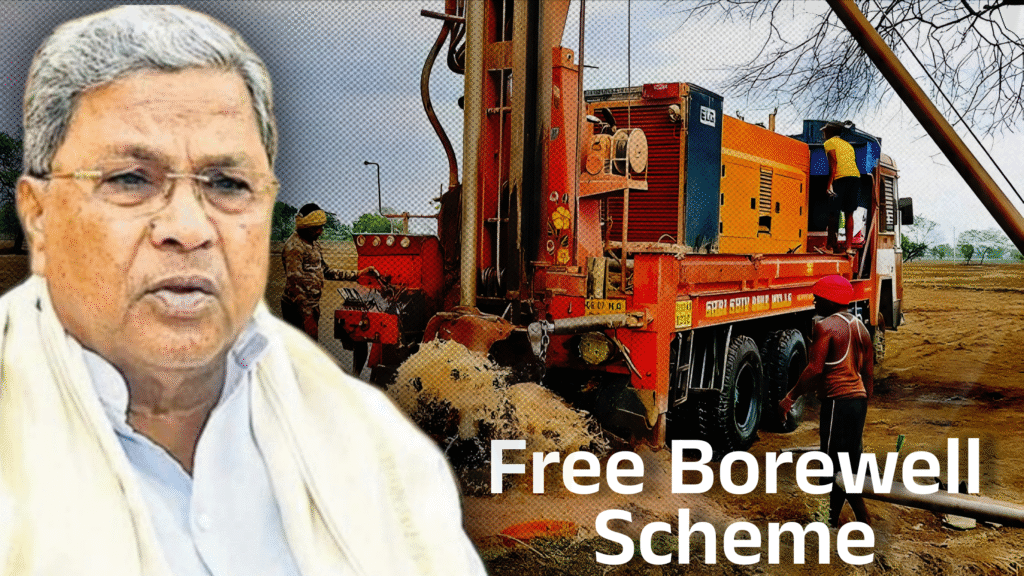
Background of the Scheme
The Free Borewell Scheme in Karnataka was launched to improve rural irrigation and support small farmers who rely heavily on rainwater. Agriculture in Karnataka is largely dependent on monsoons, but irregular rainfall often leaves fields dry and barren. To counter this, the state decided to provide borewell drilling facilities either free of cost or at a subsidized rate for farmers who own limited land.
The scheme is primarily focused on Scheduled Castes (SC), Scheduled Tribes (ST), and minority farmers, but other small landholding farmers can also apply depending on availability and guidelines issued by the government each year.
Objectives of the Free Borewell Scheme
- Increase irrigation coverage – By drilling borewells in dry farming areas, more agricultural land can come under assured irrigation.
- Support small and marginal farmers – Provide financial relief to those who cannot afford borewell installation costs.
- Ensure better crop yield – Stable irrigation ensures multiple cropping seasons and higher productivity.
- Reduce farmer distress – Access to water helps reduce migration, debts, and dependency on moneylenders.
- Promote self-reliance – Farmers become independent in managing their water resources.
Key Features of the Scheme
- Free Borewell Drilling: Eligible farmers get borewell drilling done on their land without paying charges.
- Pump Set Installation: Along with borewell, the government provides free or subsidized pump sets.
- Water Tank & Pipeline: In some cases, pipelines and overhead tanks are installed to distribute water effectively.
- Preference for Small Farmers: Priority is given to those who own less land and belong to vulnerable communities.
- Online & Offline Applications: Farmers can apply through online portals or at local Taluk offices.
- Technical Survey: Geological survey is conducted to ensure groundwater availability before drilling.
- Cluster System: In some regions, borewells are provided under a cluster system to benefit multiple farmers.
Eligibility Criteria
To avail benefits of the Free Borewell Scheme, farmers need to meet specific eligibility requirements:
- Landholding:
- The farmer should own 2 to 5 acres of agricultural land (varies with community).
- Land must be dry and dependent on rainfall.
- Community Preference:
- Special preference to SC/ST farmers under the Ganga Kalyana Yojane.
- Minority farmers are also covered under KMDC schemes.
- Income Limit: Annual family income should generally be below ₹96,000 in rural areas and ₹1.03 lakh in urban areas (subject to updates).
- One Borewell Rule: Only one borewell is sanctioned per farmer or family.
Documents Required
- Aadhaar Card (for identity proof)
- Ration Card / Caste Certificate
- Land Records (RTC or Pahani copy)
- Income Certificate issued by Tahsildar
- Domicile/Residence Certificate
- Passport-size Photographs
- Bank Account Details (for related subsidy transfer)
Application Process
The application process is designed to be simple but involves verification and technical surveys.
Step 1 – Registration
Farmers can apply either online through Seva Sindhu portal or offline at Taluk offices, Minority Development Corporation offices, or District Agriculture offices.
Step 2 – Document Submission
Upload or submit required documents such as caste, income, and land records.
Step 3 – Verification
Step 4 – Geological Survey
A groundwater survey is conducted by the Department of Mines & Geology to check the feasibility of drilling a borewell.
Step 5 – Sanction Order
If approved, a sanction letter is issued, and borewell drilling is scheduled.
Step 6 – Borewell Drilling & Installation
Borewell is drilled, and pump set with electrical connection is installed where feasible.
Benefits of the Scheme
- Financial Savings – Farmers save ₹50,000 to ₹1,50,000, which is usually required for private borewell drilling.
- Assured Irrigation – Reduces dependency on rainwater and secures crops against drought.
- Improved Productivity – Helps farmers grow multiple crops and increase income.
- Social Upliftment – Special focus on SC/ST and minority farmers reduces social inequalities.
- Employment Generation – More cultivation means more demand for labor in rural areas.
- Reduction in Migration – Farmers no longer need to move to cities in search of livelihood.
Challenges in Implementation
While the scheme is beneficial, it also faces several challenges:
- Groundwater Depletion – Excess drilling in dry areas may lower groundwater levels.
- Electricity Connection Delays – Farmers sometimes wait months for pump set electrification.
- Survey Inefficiencies – Geological surveys are not always accurate, leading to dry borewells.
- Awareness Issues – Many farmers in remote villages are unaware of the scheme.
- Limited Funds – Budget allocation restricts the number of beneficiaries each year.
Success Stories
Several districts in Karnataka, such as Tumakuru, Kolar, and Chitradurga, have witnessed significant improvement in agriculture after borewell installation. Farmers who earlier depended on single-season rainfed crops are now able to grow vegetables, pulses, and even commercial crops like groundnut and sunflower. Women farmers, especially from SC/ST communities, have also benefited as they gained economic independence through irrigation support.
How Farmers Can Check Application Status
Taluk and district offices also maintain lists of sanctioned applications which can be accessed by visiting physically.
Government Departments Involved
- Social Welfare Department – Provides borewell facilities for SC/ST farmers.
- Department of Agriculture – Coordinates and monitors the overall implementation.
- BESCOM/ESCOMs – Provides electricity connections for pump sets.
Future Prospects
The government is planning to integrate the Free Borewell Scheme with solar pump set programs to reduce dependency on electricity. There are also discussions about community borewell systems where one borewell can irrigate land belonging to multiple farmers through pipelines. Moreover, awareness campaigns are being strengthened to ensure no eligible farmer is left behind.
Conclusion
The Karnataka Free Borewell Scheme is a landmark initiative that addresses one of the most critical challenges in agriculture—water scarcity. By providing free borewells, pump sets, and irrigation facilities, the government is not only supporting farmers financially but also empowering them to cultivate crops with confidence.
Despite some challenges like groundwater depletion and limited funds, the scheme has already transformed the lives of thousands of farmers in drought-prone districts. With better planning, awareness, and sustainable practices, this initiative can play a pivotal role in achieving agricultural growth, rural development, and farmer welfare in Karnataka.
